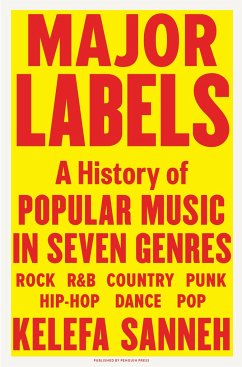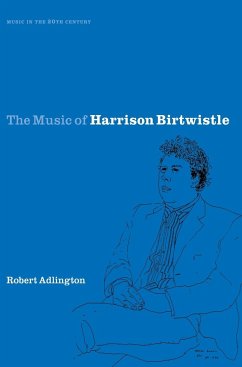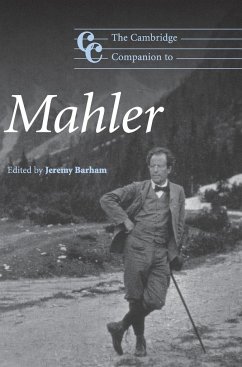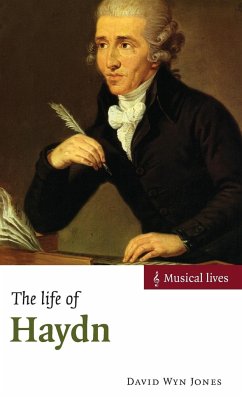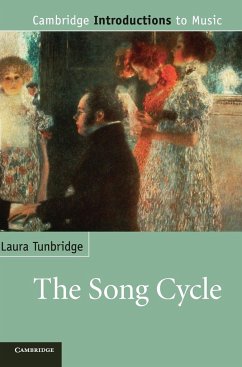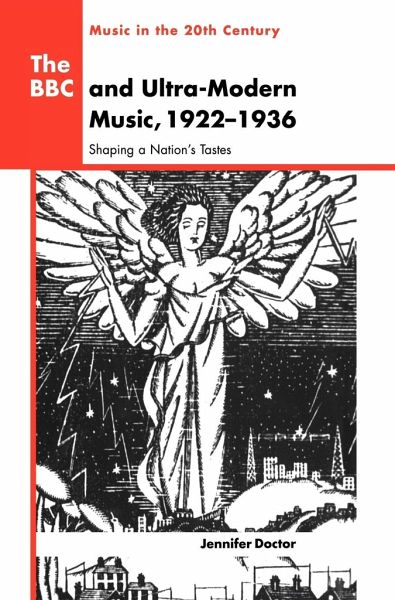
The BBC and Ultra-Modern Music, 1922 1936
Shaping a Nation's Tastes
Herausgeber: Whittall, Arnold

PAYBACK Punkte
67 °P sammeln!
This book examines the BBC's campaign to raise cultural awareness of British mass audiences in the early days of radio. As a specific case, it focuses on policies and plans behind transmissions of music by composers associated with Arnold Schoenberg's circle between 1922, when the BBC was founded, and spring 1936, when Edward Clark, a former Schoenberg pupil and central figure in BBC music, resigned from the Corporation. This study traces and analyses the BBC's attempts to manipulate critical and public responses to this repertory. The book investigates three interrelated aspects of early BBC ...
This book examines the BBC's campaign to raise cultural awareness of British mass audiences in the early days of radio. As a specific case, it focuses on policies and plans behind transmissions of music by composers associated with Arnold Schoenberg's circle between 1922, when the BBC was founded, and spring 1936, when Edward Clark, a former Schoenberg pupil and central figure in BBC music, resigned from the Corporation. This study traces and analyses the BBC's attempts to manipulate critical and public responses to this repertory. The book investigates three interrelated aspects of early BBC history. Policy decisions relating to contemporary music transmissions are examined to determine why precious broadcast time was devoted to this repertory. Early personnel structures are reconstructed to investigate the responsibilities, attitudes and interests of those who influenced music broadcasting. Finally, broadcasts of Second Viennese School works are examined in detail.
Table of contents:
Part I. The Emergence of BBC Music Programmes: 1. The British music industry and the BBC; 2. BBC personnel, policies and programmes in the 1920s; Part II. The Pitt Years, 1922-9: 3. The foundations of music programming, 1922-6; 4. The music programmes take shape; 5. The first wave of Second Viennese School broadcasts, 1927-8; 6. Refining the music programmes, 1928-9; 7. Pitt's final season, 1929-30; Part III. The Early Boult Years, 1930-6: 8. Boult's initial seasons, 1930-1, 1931-2; 9. Transition to the new regime, 1932-3, 1933-4; 10. Policies and politics, 1934-5, 1935-6; 11. Clark's legacy.
This book examines the BBC's campaign to raise cultural awareness of British mass audiences in the early days of radio. As a specific case, it focuses on policies and plans behind transmissions of contemporary music between 1922, when the BBC was founded, and spring 1936.
This book examines the BBC's attempts to manipulate critical and public responses to contemporary music between 1922 and 1936.
Table of contents:
Part I. The Emergence of BBC Music Programmes: 1. The British music industry and the BBC; 2. BBC personnel, policies and programmes in the 1920s; Part II. The Pitt Years, 1922-9: 3. The foundations of music programming, 1922-6; 4. The music programmes take shape; 5. The first wave of Second Viennese School broadcasts, 1927-8; 6. Refining the music programmes, 1928-9; 7. Pitt's final season, 1929-30; Part III. The Early Boult Years, 1930-6: 8. Boult's initial seasons, 1930-1, 1931-2; 9. Transition to the new regime, 1932-3, 1933-4; 10. Policies and politics, 1934-5, 1935-6; 11. Clark's legacy.
This book examines the BBC's campaign to raise cultural awareness of British mass audiences in the early days of radio. As a specific case, it focuses on policies and plans behind transmissions of contemporary music between 1922, when the BBC was founded, and spring 1936.
This book examines the BBC's attempts to manipulate critical and public responses to contemporary music between 1922 and 1936.






